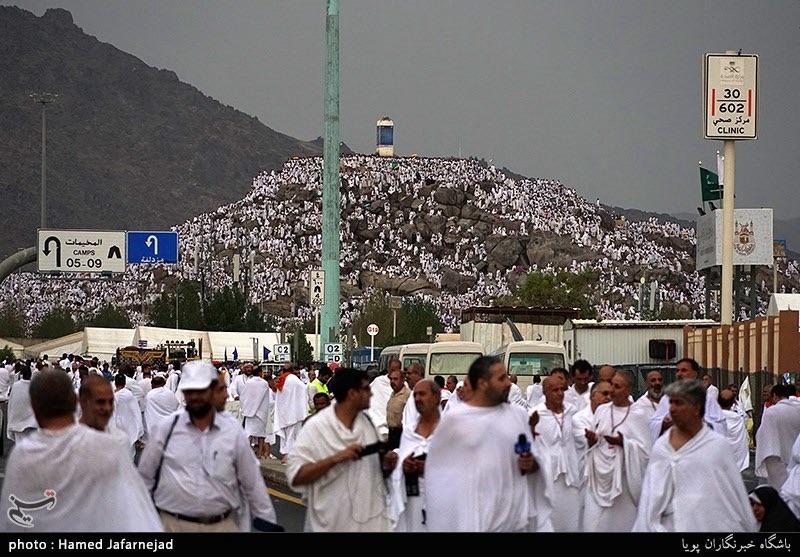Arafat Day, also known as the Day of Arafah, is one of the holiest days in the Islamic calendar. It falls on the 9th day of Dhul Hijjah, the last month of the Islamic lunar year. For Muslims, this day marks the spiritual climax of the Hajj pilgrimage, but it is also a day of immense mercy and forgiveness for all believers, whether or not they are performing Hajj. The purpose of this article is to explain the deep Islamic significance of Arafat Day, why fasting on this day is highly recommended, and when it will be observed in 2025 in the USA, India, and Arab countries. We will ground our discussion in the Holy Quran and authentic Hadith, with clear explanations and practical reflections.
Understanding Arafat Day: Its Place in Islam
What is Arafat Day?
Arafat Day is named after the plain of Arafat, near Mecca, where millions of pilgrims gather each year during Hajj. On this day, Prophet Muhammad (PBUH) delivered his Farewell Sermon, emphasizing human rights, equality, and the core values of Islam. This day is the heart of the Hajj pilgrimage, as the Prophet (PBUH) said:
“Hajj is Arafah.” (Sunan an-Nasa’i)
Quranic Reference:
On Arafat Day, Allah (SWT) revealed the verse that marks the completion of Islam:
“This day I have perfected for you your religion and completed My favour upon you and have approved for you Islam as religion.”
(Surah Al-Ma’idah, Ayah 3)
حُرِّمَتۡ عَلَیۡكُمُ ٱلۡمَیۡتَةُ وَٱلدَّمُ وَلَحۡمُ ٱلۡخِنزِیرِ وَمَاۤ أُهِلَّ لِغَیۡرِ ٱللَّهِ بِهِۦ وَٱلۡمُنۡخَنِقَةُ وَٱلۡمَوۡقُوذَةُ وَٱلۡمُتَرَدِّیَةُ وَٱلنَّطِیحَةُ وَمَاۤ أَكَلَ ٱلسَّبُعُ إِلَّا مَا ذَكَّیۡتُمۡ وَمَا ذُبِحَ عَلَى ٱلنُّصُبِ وَأَن تَسۡتَقۡسِمُوا۟ بِٱلۡأَزۡلَـٰمِۚ ذَ ٰلِكُمۡ فِسۡقٌۗ ٱلۡیَوۡمَ یَىِٕسَ ٱلَّذِینَ كَفَرُوا۟ مِن دِینِكُمۡ فَلَا تَخۡشَوۡهُمۡ وَٱخۡشَوۡنِۚ ٱلۡیَوۡمَ أَكۡمَلۡتُ لَكُمۡ دِینَكُمۡ وَأَتۡمَمۡتُ عَلَیۡكُمۡ نِعۡمَتِی وَرَضِیتُ لَكُمُ ٱلۡإِسۡلَـٰمَ دِینࣰاۚ فَمَنِ ٱضۡطُرَّ فِی مَخۡمَصَةٍ غَیۡرَ مُتَجَانِفࣲ لِّإِثۡمࣲ فَإِنَّ ٱللَّهَ غَفُورࣱ رَّحِیمࣱ
Forbidden to you (for food) are: Al-Maytatah (the dead animals – cattle-beast not slaughtered), blood, the flesh of swine, and the meat of that which has been slaughtered as a sacrifice for others than Allah, or has been slaughtered for idols, etc., or on which Allah’s Name has not been mentioned while slaughtering, and that which has been killed by strangling, or by a violent blow, or by a headlong fall, or by the goring of horns – and that which has been (partly) eaten by a wild animal – unless you are able to slaughter it (before its death) – and that which is sacrificed (slaughtered) on An-Nusub (stone altars). (Forbidden) also is to use arrows seeking luck or decision, (all) that is Fisqun (disobedience of Allah and sin). This day, those who disbelieved have given up all hope of your religion, so fear them not, but fear Me. This day, I have perfected your religion for you, completed My Favour upon you, and have chosen for you Islam as your religion. But as for him who is forced by severe hunger, with no inclination to sin (such can eat these above-mentioned meats), then surely, Allah is Oft-Forgiving, Most Merciful.
[5:3]
This ayah signifies that Islam reached its perfection on the Day of Arafah, making it a day of gratitude and celebration for all Muslims.
The Virtues of Arafat Day: Quranic and Prophetic Teachings
A Day of Forgiveness and Mercy
Prophet Muhammad (PBUH) emphasized the unmatched blessings of Arafat Day:
“There is no day on which Allah frees people from the Fire more so than on the Day of Arafah.”
(Sahih Muslim)
He also said:
“Allah expresses His pride to His angels at the time of Isha on the Day of Arafah, about the people of Arafah. He says, ‘Look at My slaves who have come unkempt and dusty.’”
(Musnad Ahmad)
Connection to the Hereafter
The Day of Arafah is also linked to the Day of Resurrection. The Prophet (PBUH) said:
“The promised day is the Day of Resurrection, the witnessed day is the Day of Arafah, and the witnessing day is Friday.”
(Tirmidhi)
Why Fast on Arafat Day? Quran and Hadith Evidence
Fasting for Forgiveness
Fasting on Arafat Day is a confirmed Sunnah for those not performing Hajj. The Prophet (PBUH) was asked about fasting on this day and said:
“Fasting on the day of Arafah is an expiation for the preceding year and the following year.”
(Sahih Muslim 1162)
This means Allah (SWT) forgives the minor sins of the previous and coming years for those who fast sincerely.
Who Should Fast?
- It is highly recommended (mustahabb) for all Muslims who are not in Hajj.
- Pilgrims at Arafat are advised not to fast, as the Prophet (PBUH) did not fast during Hajj to maintain strength for worship.
Spiritual Benefits of Fasting on Arafat Day:
- Forgiveness of two years’ worth of sins (minor sins)
- Drawing closer to Allah (SWT)
- Spiritual purification and renewal
- Increased acceptance of prayers (dua)
- Following the Sunnah of Prophet Muhammad (PBUH)
Fasting Dates in USA, India, and Arab Countries
When is Arafat Day 2025?
- Saudi Arabia, the UAE, Qatar, Oman, and other Gulf countries have confirmed that the 9th of Dhul Hijjah (Day of Arafah) will fall on June 5, 2025, with Eid al-Adha on June 6.
- In the USA, Eid al-Adha is expected on June 6, with Arafat Day fasting on June 5 as well
- Some countries in Asia such as India, Pakistan, and Malaysia, Eid al-Adha is expected on June 7, with Arafat Day fasting on June 6.
Local Sightings:
The exact date may vary by a day depending on local moon-sighting, but most communities will observe Arafat Day on June 5, 2025.
Deoband ulama in India clearly state that fasting on the Day of Arafat (9th Dhul-Hijjah) should be observed according to the local or regional moon sighting, not according to the Saudi (Hajj) calendar.
The Deeper Meaning: Spiritual Lessons and Real-World Reflections
A Day for All Muslims
Even if you are not at Hajj, Arafat Day is an opportunity for every Muslim to seek forgiveness, renew their faith, and reflect on their purpose.
Practical Actions for Arafat Day:
- Fast from dawn to sunset (if not at Hajj)
- Increase supplication (dua), especially for forgiveness and mercy
- Recite Tahmeed (Alhamdulillah), Takbeer (Allahu Akbar), and Tahleel (La ilaha illallah) often
- Give charity (zakat, sadaqah) to those in need
- Reflect on the Farewell Sermon and its message of justice and equality
Real-World Example:
Millions of Muslims around the world, from the USA to India to the Arab world, will fast and spend the day in worship, even if they are not at Arafat. This unity in worship connects the global Muslim community and reminds everyone of the core values of Islam.
Common Questions and Misconceptions
Is fasting on Arafat Day obligatory?
No, it is not obligatory but highly recommended for those not performing Hajj.
Does fasting on Arafat Day erase all sins?
Fasting erases minor sins for the previous and coming year, as stated in authentic Hadith. Major sins require sincere repentance.
Can women and the sick fast on Arafat Day?
Yes, if they are able. Those who are sick or unable are excused, as with all voluntary fasts.
Embracing the Spirit of Arafat Day
Arafat Day is a gift from Allah (SWT) for every believer. Whether you are at Arafat or at home, use this day to seek forgiveness, renew your commitment to Islam, and pray for yourself and the Ummah. The fast is a shield, a means of purification, and a way to draw closer to Allah (SWT).
How can you make the most of this blessed day? How can you carry its lessons into the rest of your year?
Conclusion
Arafat Day is more than a date on the calendar; it is a day of mercy, forgiveness, and spiritual renewal. Fasting on this day, as taught by Prophet Muhammad (PBUH), is a powerful act of worship that brings immense rewards. In 2025, Muslims in the USA, Arab countries will observe Arafat Day on June 5 and India on June 6. Let us all strive to honor this day through fasting, prayer, and reflection, seeking Allah’s mercy and striving to perfect our character.
For further reading and verification, please consult the above online resources or your local Islamic scholars.







